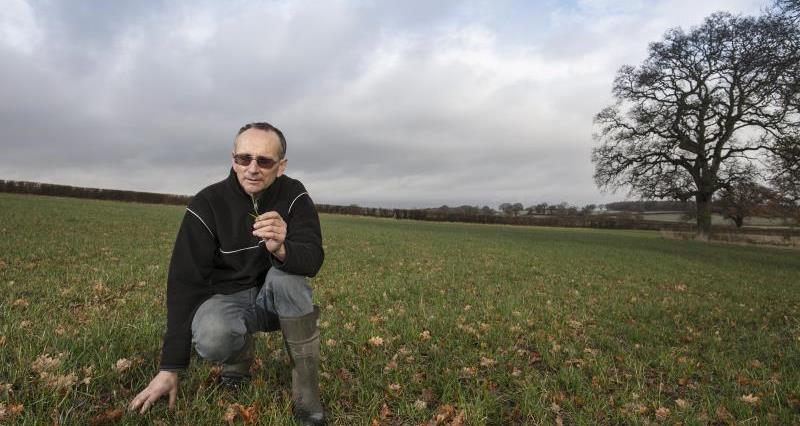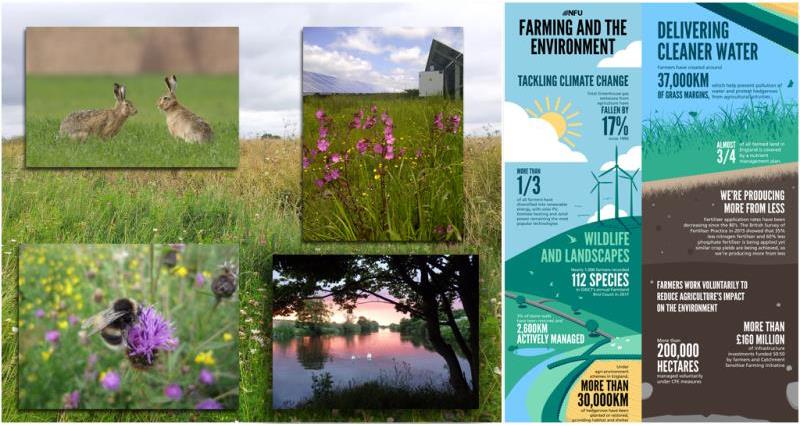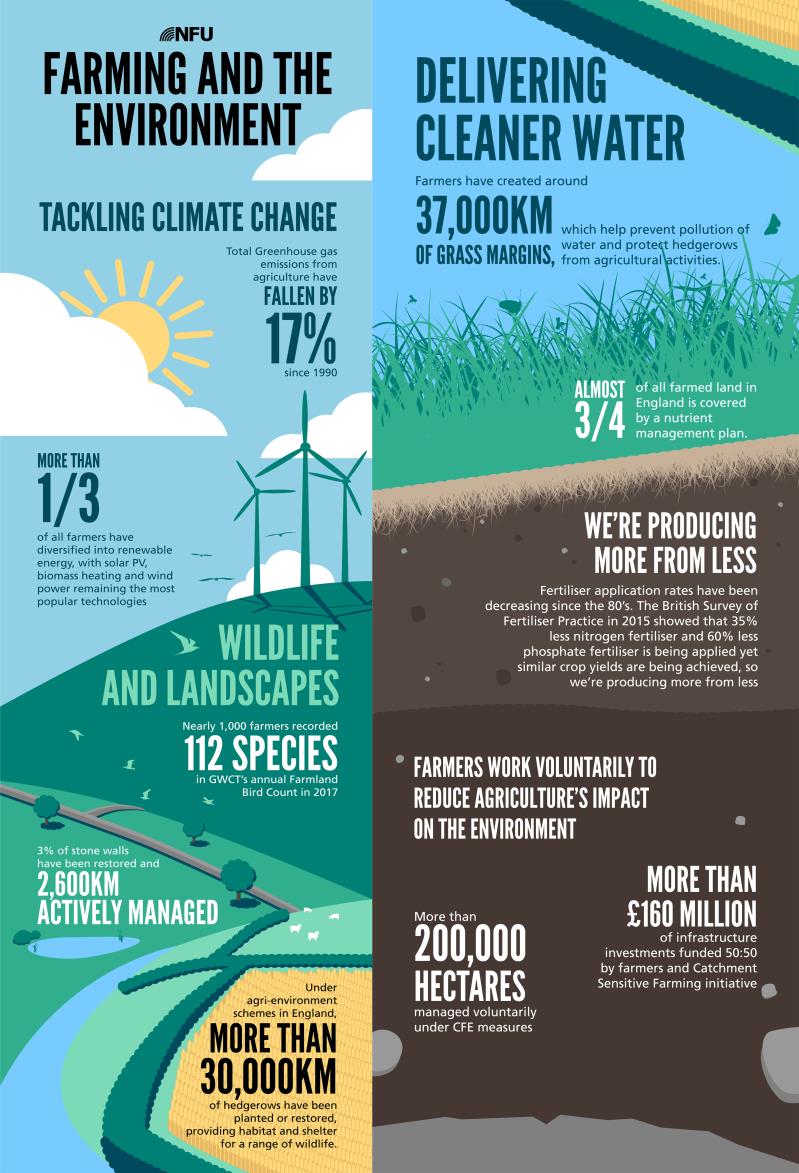Across Britain, and from China to Chile and from Sweden to South Africa, governments, schools, businesses and the public have organised thousands of fun events that will help us appreciate our dependence on the natural world and the need to protect it.
Launched in 1972, the day has developed into a global platform for raising awareness and taking action on urgent environmental such as global warming.
This year’s theme is ‘Connecting People to Nature’ designed to encourage more of us to get outdoors and appreciate nature’s beauty and its importance and to get up close to wildlife.
British farmers are passionate about providing a huge variety of quality British food for us all to enjoy.
But farming is about much more than growing great food. Our farmers are working hard every day to protect the environment and the countryside.
They take their roles as custodians of the countryside very seriously.
For example, did you know?
- Farming plays an important role in managing the great British countryside - over 70 per cent of the UK’s land area is farmed, providing habitats for wildlife and iconic landscapes for us all to enjoy.
- Agricultural land is the most accessible it’s ever been with about 202,021 kilometres of public rights of way in England.
- Under agri-environment schemes in England, over 30,000km of hedgerows have been planted or restored, providing habitat and shelter for a range of wildlife.
- Total GHG emissions from agriculture have fallen by 17% since 1990.
- Nearly 1,000 farmers recorded 112 species in GWCT’s annual Farmland Bird Count in 2017.
- Farmers have created around 37,000km of grass margins, which help prevent pollution of water and protect hedgerows from agricultural activities.
- More than 200,000 hectares managed voluntarily under Campaign for the Farmed Environment measures
- Surveys show that more than one-third of all farmers have diversified into renewable energy, with solar PV, biomass heating and wind power remaining the most popular technologies
- 3% of stone walls have been restored 2,600km actively managed
- Almost three quarters of farmed land in England is covered by a nutrient management plan
- Fertiliser application rates have been declining since the 1980s. The British Survey of Fertiliser Practice in 2015 showed that 35% less nitrogen fertiliser and 60% less phosphate fertiliser is being applied yet similar crop yields are being achieved, so we’re producing more from less
- More than £160m of infrastructure investments funded 50:50 by farmers and the Catchment Sensitive Farming initiative
Farmer Mark Pope is chairman of the NFU’s Environment Forum. He farms 700 acres of arable land in the Blackdown AONB, Somerset. Mark said: “My simple philosophy is that any intervention to help make environmental improvements on my farm must work alongside my primary aim to produce high quality food.
“Over the years, efficiency gains, better use of resources, participation in agri-environment schemes, my own voluntary activities through the Campaign for the Farmed Environment (CFE) and involvement in natural flood management schemes have resulted in a great deal of environmental benefit, alongside my commercial farming activities.
“Our farm visits that we organise are invaluable at reconnecting children with farming, food and our vibrant environment. This can only be good for the farming sector and for the education of our children but also their health and wellbeing.”


